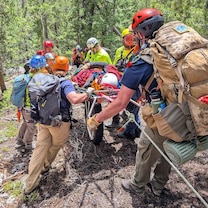Breast Changes Reduce Cancer Risk
Nov. 14, 2006 — -- BREAST CHANGES WITH AGE REDUCE CANCER RISK Women whose milk glands shut down with age may have a reduced risk of breast cancer, according to new research from the Journal of the National Cancer Institute. Researchers from the Mayo Clinic followed more than 8,700 women and found that those whose milk glands shut down -- a process called involution -- had about half the risk of developing breast cancer as women whose milk glands didn't. The authors say this may be another clue to help evaluate breast cancer risk in women.
LONG LIVE MEN Men, if you want to live long and be healthy, don't smoke, don't be overweight, don't drink excessively or have high blood pressure. These are the findings of a study following 5,820 Japanese American men from middle age onward. Forty-two percent of the men survived to age 85, and 11 percent managed to get to age 85 without any heart disease, stroke, cancer, diabetes, Parkinson's disease or mental impairment. The men who survived to old age without major illness had better grip strength at middle age, and they weren't likely to be overweight, diabetic, smokers, big drinkers, or have high blood pressure or high cholesterol. Though the findings were only in men, they are very likely to apply to women as well. These results were published in the most recent issue of the Journal of the American Medical Association by researchers from the Pacific Health Research Institute and Kuakini Medical Center.
STATS ON SIBLINGS Sisters feel closer to their siblings than brothers do, and relationships between siblings become closer in later adolescence, according to a new study of children in 200 white, two-parent families. Children were tracked for about five years. Fighting was greatest when the oldest child was about 13 and the younger sibling was about 10. These findings were published by researchers from Pennsylvania State University in the most recent issue of Child Development.
STAT is a brief look at the latest medical research and is compiled by Joanna Schaffhausen, who holds a doctorate in behavioral neuroscience. She works in the ABC News Medical Unit, evaluating medical studies, abstracts and news releases.




